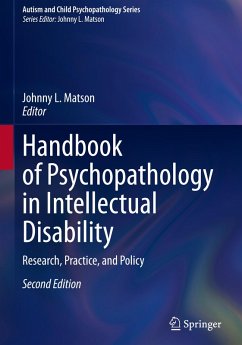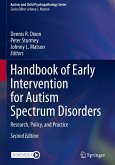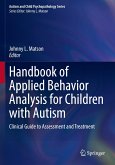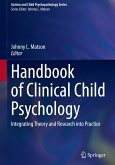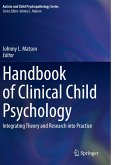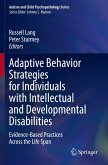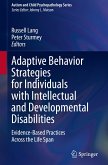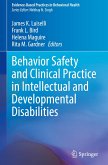The Second Edition of the handbook reflects the diversity of this complex subject matter, addressing its prevalence and presentation, testing methods, and treatment options. In addition to focusing on specific psychopathologies as they affect the course of intellectual disability (ID), several new chapters and significantly updated coverage span the field from in-depth analyses of psychosocial aspects of ID to promising new findings in genetics and the ongoing challenges of tailoring personalized care to meet individual client needs. Expert contributors bridge gaps between the evidence base and best practices for treating clients with ID across disciplines and discuss improved policy for maximum utility.
Key areas of coverage include:
Core etiological approaches in psychopathology and ID, including neuroimaging, behavioral phenotypes and genetic syndromes, psychological and social factors, and epilepsy.Comorbid psychopathologies (e.g., mood, anxiety, bipolar and personality disorders).Common clinical conditions (e.g., ADHD, autism, and behavior problems).Medical and psychological interventions (e.g., psychopharmacology) as well as community and inpatient services.
The Handbook of Psychopathology in Intellectual Disability, Second Edition, is an essential reference for researchers, professors, and graduate students as well as clinicians, therapists, and other scientist-practitioners in developmental, school, and clinical child psychology, psychiatry, social work, rehabilitation medicine, public health, neuropsychology, and all related disciplines.
Key areas of coverage include:
Core etiological approaches in psychopathology and ID, including neuroimaging, behavioral phenotypes and genetic syndromes, psychological and social factors, and epilepsy.Comorbid psychopathologies (e.g., mood, anxiety, bipolar and personality disorders).Common clinical conditions (e.g., ADHD, autism, and behavior problems).Medical and psychological interventions (e.g., psychopharmacology) as well as community and inpatient services.
The Handbook of Psychopathology in Intellectual Disability, Second Edition, is an essential reference for researchers, professors, and graduate students as well as clinicians, therapists, and other scientist-practitioners in developmental, school, and clinical child psychology, psychiatry, social work, rehabilitation medicine, public health, neuropsychology, and all related disciplines.

